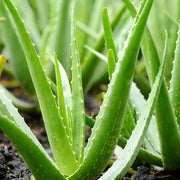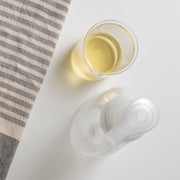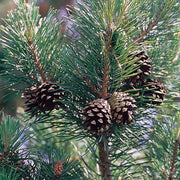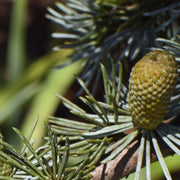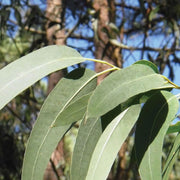Practice aromatherapy for travel this spring break
Spring break is here for a lot of students! Despite this time of uncertainty and constant change, safe travel can provide a much-needed change of scenery, release stress, and remind us to enjoy life to its fullest.
Now more than ever, it’s important to protect your health while traveling.
This post is full of natural wellness essential oil recipes for travel that can help! You’ll find tips and blends for keeping your hands clean, staying well rested (even in hotels and on planes), calming motion sickness and travel anxiety, and boosting your immune health (so important!)
Let’s start with one of the most important aspects of staying healthy. . .
Are essential oils TSA approved?

First things first: can you take your favorite essential oils on your next trip? While the transportation security administration (TSA) does not explicitly forbid essential oils from being carried on board, travelers are encouraged to remain mindful of liquid limits when bringing them in carry-on bags. That being said, taking the smaller sizes of our pure essential oil containers should be no problem for checked luggage or carry-ons.
Being able to identify the type of essential oil is also important for security officials to ensure that it does not contain any prohibited ingredients or substances. Therefore, familiarizing yourself with TSA guidelines before traveling can help you avoid any potential issues when carrying essential oils on a plane. Here is a list containers we use to take our essential oils traveling:
- PET Plastic Bottles (1 - 2 floz)
- Glass Roller Bottles (10ml)
- Glass Bottles with Orifice Reducer (5-100ml)
Travel tip: To avoid potential breakage, we encourage you to travel with PET plastic containers as much as possible.
Keep your hands clean
Keeping your hands clean plays such an important role in travel wellness, we gave it its own section apart from immune support.
Traveling exposes you to germs and harmful bacteria you wouldn’t otherwise encounter by staying home. Airports are hubs for people from all over the world. The surfaces there—like the surfaces of planes and other public transportation—have been touched by many hands! Cleaning your hands as often as possible can help reduce your risk of illness.
Washing your hands with gentle, natural soap and water is the best way to get rid of germs.
When you can’t get to a sink, you can keep your hands feeling fresh with an aloe vera (Aloe barbadensis) based natural hand sanitizer gel, or a moisturizing lotion with essential oils that help purify your skin.
Here are a few hand-care recipes to get you started!
Travel tip: For the Wild Orange Foaming Hand Soap, you can make the full-sized 250 ml bottle (perfect for kitchen and bathroom sinks), and just pour some into a 50 ml travel-sized bottle for your travel kit. Or you can reduce the recipe by 1/5. In that case, you’d need less than 50 ml of Castile soap, 5 drops of wild orange oil essential oil (Citrus sinensis), and 3 drops of Scotch pine essential oil (Pinus sylvestris).
Kick jet lag

Getting enough rest plays a HUGE role in staying healthy, even when you’re not traveling! When you are traveling, it becomes an even bigger priority . . . and one that can be tougher to achieve.
It’s not easy to sleep on long flights, and hectic travel schedules mean that you might have to get up at odd hours to make your plane. Once you arrive at your destination, jet lag might confuse your circadian rhythm and sleep schedule, messing with your energy levels so your body feels tired in the middle of the day, but too alert to sleep at night.
Lack of sleep can leave you with no energy to enjoy your trip. It can even compromise your immune system, making you more likely to get sick.
Not what you want for a relaxing vacation!
These essential oils for travel recipes can help you get enough sleep, so you can overcome jet lag and feel balanced and energized. They’re made with essential oils like black spruce essential oil (Picea mariana), which can have a calming effect after a long day of stress and screen exposure, and lavender essential oil (Lavandula angustifolia)—probably the most popular essential oil in the world for rest and relaxation!
Calm queasiness
Do you get an upset stomach when you travel? Maybe you get a little nervous flying, or the motion itself makes your belly feel queasy. Or maybe trying new food is tough on your digestive system.
Avoid these issues with our DIY essential oils for travel recipes!
The beauty of using aromatherapy to support your belly is that, regardless of what’s causing queasy feelings, these essential oils for travel recipes can help calm them.
Essential oils like cardamom essential oil (Elettaria cardamomum) and ginger essential oil (Zingiber officinale) have such an affinity for the belly because of their anti inflammatory properties, some people refuse to travel without them. There’s even a simple peppermint hydrosol (Mentha × piperita) recipe you can sip on while you travel! (Just be sure to pour the hydrosol into a smaller bottle so you can take it in your travel bag through airport security. You’ll only need a teaspoon for the sipping recipe below!)

Support your immune health with essential oils
Keeping your immune health as strong and resilient as possible is a must for a safe, fun trip!
Our three previous points actually play a role in immune health, too.
That’s because your immune system isn’t pan “isolated” system within your body. pIt’s more like a holistic response.
And then there are essential oil recipes—like the ones below—that focus on strengthening immunity in a more direct way. These DIY essential oil blends purify your space and encourage your body to protect itself against health threats. They’re made with classic immune support oils like thyme ct linalool essential oil (Thymus vulgaris ct linalool) and eucalyptus essential oil (Eucalyptus globulus).
Essential oil recipes for travel
Use these essential oil recipes for that extra boost of health and other benefits you need when you’re traveling, surrounding yourself with new people and places, and shifting your schedule.







